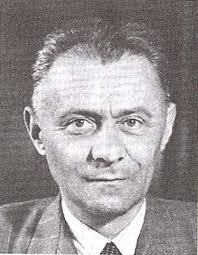Hubert Ripka on:
[Wikipedia]
[Google]
[Amazon]
 Hubert Ripka (26 July 1895,
Hubert Ripka (26 July 1895,
online
*''Munich: Before and After: A Fully Documented Czechoslovak Account of the Crises of September 1938....'' London: Gollancz, 1939 * ''The Soviet-Czechoslovak treaty''. London: Czechoslovak Ministry of Foreign Affairs, Information Service, 1943 - speech delivered before the State council on 15 December 1943 *''East and West''. London: Lincolns-Prager, c1944 * "Czechoslovakia's Attitude to Germany and Hungary." ''The Slavonic and East European Review'' 23.62 (1945): 47–54
online
*''Czechoslovakia Enslaved: The Story of the Communist Coup d'État''. London: Victor Gollancz, 195
online
*''Eastern Europe in the post-war world''. Methuen, 1961
 Hubert Ripka (26 July 1895,
Hubert Ripka (26 July 1895, Kobeřice u Brna
Kobeřice u Brna is a municipality and village in Vyškov District in the South Moravian Region of the Czech Republic. It has about 700 inhabitants.
Kobeřice u Brna lies approximately south of Vyškov, south-east of Brno, and south-east of Pr ...
– 7 January 1958, London
London is the capital and largest city of England and the United Kingdom, with a population of just under 9 million. It stands on the River Thames in south-east England at the head of a estuary down to the North Sea, and has been a majo ...
) was a Czechoslovak
Czechoslovak may refer to:
*A demonym or adjective pertaining to Czechoslovakia (1918–93)
**First Czechoslovak Republic (1918–38)
**Second Czechoslovak Republic (1938–39)
**Third Czechoslovak Republic (1948–60)
**Fourth Czechoslovak Repub ...
politician, journalist, historian, and author.
Life
The son of aforester
A forester is a person who practises forestry, the science, art, and profession of managing forests. Foresters engage in a broad range of activities including ecological restoration and management of protected areas. Foresters manage forests to ...
, Ripka was the diplomatic correspondent of the Czech newspaper Lidové Noviny
''Lidové noviny'' (''People's News'', or ''The People's Newspaper'', ) is a daily newspaper published in Prague, the Czech Republic. It is the oldest Czech daily still in print, and a newspaper of record.Edvard Beneš
Edvard Beneš (; 28 May 1884 – 3 September 1948) was a Czech politician and statesman who served as the president of Czechoslovakia from 1935 to 1938, and again from 1945 to 1948. He also led the Czechoslovak government-in-exile 1939 to 1945 ...
. An opponent of the Munich Agreement
The Munich Agreement ( cs, Mnichovská dohoda; sk, Mníchovská dohoda; german: Münchner Abkommen) was an agreement concluded at Munich on 30 September 1938, by Nazi Germany, Germany, the United Kingdom, French Third Republic, France, and Fa ...
, Ripka moved to France after its signing and wrote ''Munich: Before and After'', an indictment of the events. When France surrendered to German forces in 1940, Ripka moved to England and became Secretary of State in the Ministry of Foreign Affairs in the Czechoslovakian government-in-exile. After Germany's defeat in 1945, Ripka returned to Czechoslovakia and took office in the postwar government as Minister for Foreign Trade. He was also a member of the Constituent National Assembly of Czechoslovakia from 1946 to 1948. With the Communist seizure of power in February 1948 Ripka left Czechoslovakia once more, remaining in exile until his death ten years later.
Works
* "Czechoslovakia: The Key to the Danubian Basin." ''The Slavonic and East European Review'' 17.49 (1938): 54–72online
*''Munich: Before and After: A Fully Documented Czechoslovak Account of the Crises of September 1938....'' London: Gollancz, 1939 * ''The Soviet-Czechoslovak treaty''. London: Czechoslovak Ministry of Foreign Affairs, Information Service, 1943 - speech delivered before the State council on 15 December 1943 *''East and West''. London: Lincolns-Prager, c1944 * "Czechoslovakia's Attitude to Germany and Hungary." ''The Slavonic and East European Review'' 23.62 (1945): 47–54
online
*''Czechoslovakia Enslaved: The Story of the Communist Coup d'État''. London: Victor Gollancz, 195
online
*''Eastern Europe in the post-war world''. Methuen, 1961
External links
1895 births 1958 deaths People from Vyškov District People from the Margraviate of Moravia Czech National Social Party politicians Members of the Interim National Assembly of Czechoslovakia Members of the Constituent National Assembly of Czechoslovakia Recipients of the Order of Tomáš Garrigue Masaryk Government ministers of the Czechoslovak government-in-exile Czechoslovak emigrants to the United Kingdom {{CzechRepublic-politician-stub